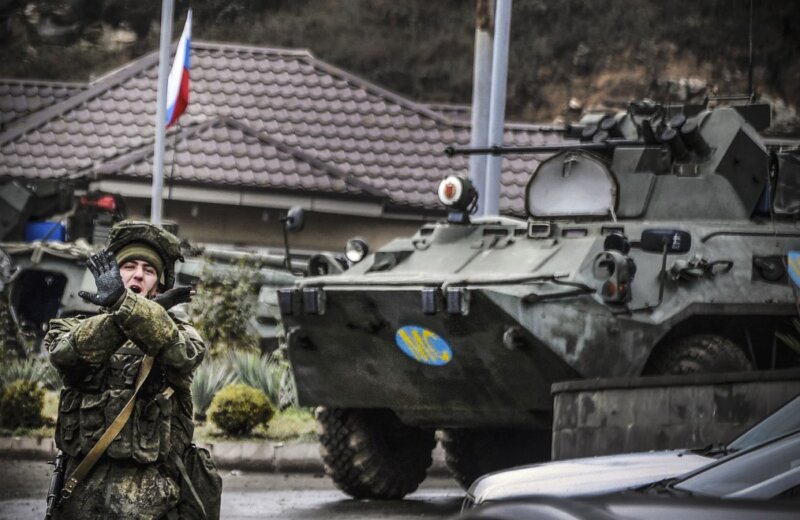Subscripe to be the first to know about our updates!

Recalibrating U.S. Attention in Eastern Europe and the Caucasus
Emil Avdaliani
Any strategy to counter Russia’s malign activities must start from the identification of simple truths.
The first is that short of war, Russia does not fear NATO or U.S. forces. Just like any military alliance in history, there are limitations and internal divisions to capitalize upon.
The second is that Russia fears economic progress among its neighbors. Prosperity would unglue the stasis of fear and hatred that helps perpetuate the Kremlin’s influence, and would tie countries like Ukraine, Georgia, and Armenia more tightly to the West. The common blockage on the path to economic success is weak institutions, allowing Russia to capitalize on chaos, manipulate the neighbors and keep the West at bay. To confront it, the U.S should consider greater investment in the national machinery of Europe’s peripheral states.
All three are experiencing serious troubles at the moment. In Ukraine, Russian military involvement continues to sap the energies of the government and people, while hopes for internal cohesion are faltering, breeding long-term economic and political stagnation.
In Georgia, political parties are struggling to compromise. It is clear that the political system is in trouble, that the political elite lacks the ability to regenerate and that as a result there are too few new personalities to lead the country in an increasingly unstable region.
In Armenia, the opposition challenges the current government of Nikol Pashinyan following the defeat in the Second Karabakh War last year. Poor handling of the Covid pandemic, coupled with economic troubles, suggests an extended chaotic period for the country.
The internal problems of these countries vary, some are caused by immediate internal shocks, but they can all be attributed to Russian influence in some way. The result is an arc of instability along Russia’s borders. Where other countries might see problems that need fixing, the Kremlin sees opportunities and fertile ground to promote its geopolitical goals.
Of course, U.S. administrations could simply choose to ignore this developing situation, or it might respond by deploying troops, as NATO has done in the Baltic states. But this is costly and new military deployments are probably off the policy menu in the 2020s. Far better and much cheaper to invest in the weak state structures of Ukraine, Georgia, and Armenia, and reap the harvest of improved justice, education, and election systems. Poor governance produces low foreign direct investment (FDI), breeds corruption, and destroys state effectiveness. It also spreads an acidic cynicism among the poorly governed.
Such a program would make the Kremlin sit up and take notice. The combination of economic development and democratic fervor among Russia’s neighbors would set alarm bells ringing. For Russia, keeping neighboring states in line means keeping them poor and disengaged from Western economic involvement.
Affluence and democratic development are where U.S. support makes the most sense and where it would produce the most results. But first, the U.S. needs to be clear about what it wants and where it can make a definitive contribution with the aim of changing the geopolitical balance along Russia’s western and southern borders. Knowing one’s own limits is a good foundation — thereafter one can develop a strategy based upon the rival’s weakest spots. Much like Russia, the U.S. should play a subtle long game.
The results would not be seen overnight. It took years for the US and EU to see tangible results from their support for democracy and justice. Now doubling down on promoting better justice, fair elections, and improved educational systems will probably deliver results, but again in years. Politicians often prefer quicker and flashier policies, but this is a long game the US should pursue. It is a good time for change and a good time to argue for lower-cost solutions to international engagement.
The Biden administration is reassessing the U.S. role in the world and the situation on Russia’s borders is on the to-do list, even if this is not currently a top priority. But there is a clear pay-off here — ultimately the spread of democracy and the prospects of effective state institutions would detach the region from the malign practices of Russia’s rising illiberal challenge.
Source: CEPA